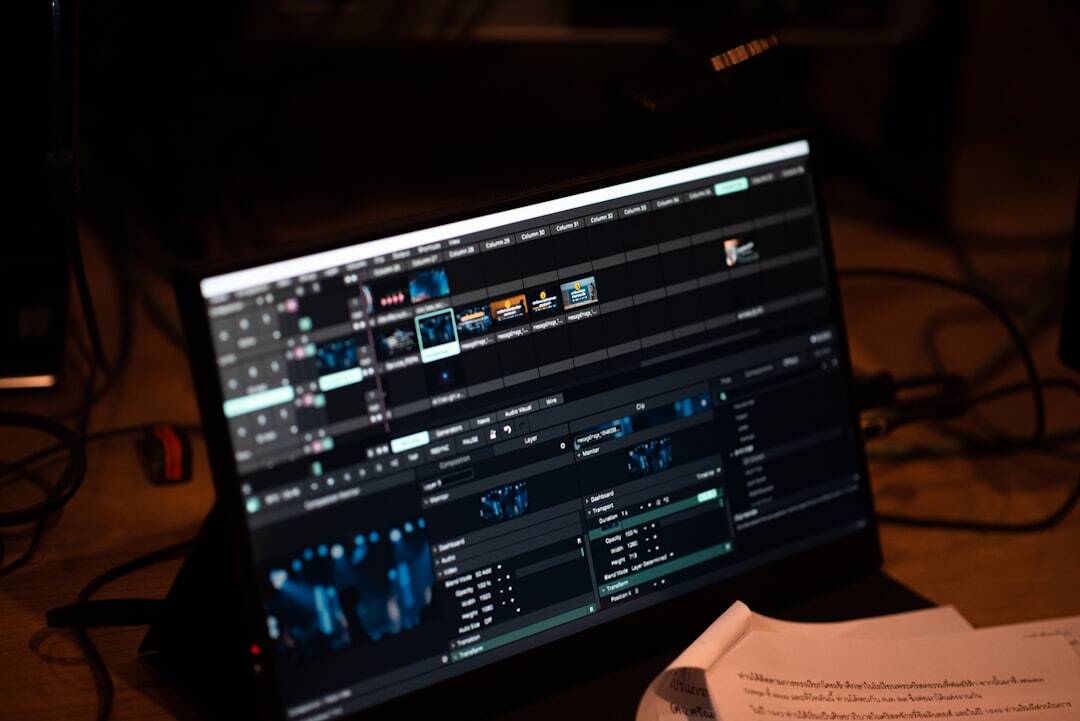For audiophiles and music lovers who value quality and flexibility, the OGG file format offers a powerful alternative to more commonly known audio formats. Known officially as Ogg Vorbis, this open-source and patent-free format is lauded for its high quality at relatively smaller file sizes. Whether you’re managing a digital music collection or preparing audio for distribution, understanding how to edit and manage OGG files can elevate your audio experience significantly.
What is an OGG File?
An OGG file is a multimedia container format maintained by the Xiph.Org Foundation. While it can contain video and text, it’s most frequently used with Vorbis-encoded audio. Unlike MP3, the OGG format is open-source, making it a preferred choice for developers and creators who value software freedom. It supports better sound quality at similar or smaller file sizes than MP3, especially noticeable at lower bitrates.
For music lovers, OGG files are commonly used in streaming platforms, games, and applications requiring high sound quality with manageable sizes. Editing and managing these files requires specialized tools but the process is straightforward when following a step-by-step approach.
Step-by-Step Guide to Editing OGG Files
To edit and manage OGG files effectively, you will need the right software and a systematic approach. Here’s a comprehensive tutorial to help you get started.
Step 1: Choose the Right Software
Editing OGG files requires software that can handle the format natively. Here are some trusted tools:
- Audacity – Free, open-source audio editor that supports OGG files natively.
- Ocenaudio – Lightweight and beginner-friendly audio editor.
- VLC Media Player – While not an editor per se, it can convert and trim OGG files.
We recommend starting with Audacity for most editing tasks due to its robust features and broad community support.
Step 2: Install Audacity and Necessary Plugins
To begin:
- Download Audacity from the official website.
- Install the software following the on-screen instructions.
- Ensure the FFmpeg library is installed, which expands import/export support.
- Once installed, open Audacity and go to Edit > Preferences > Libraries and locate FFmpeg if needed.
Once setup is complete, you’re ready to begin editing OGG files.
Step 3: Import the OGG File
To import your file into Audacity:
- Open Audacity.
- Go to File > Import > Audio and navigate to your OGG file.
- Click Open to load the audio into your workspace.

Now you’ll see the waveform representation of your audio, allowing precision edits.
Step 4: Edit the Audio
This is where the real magic happens. With your file imported, you can:
- Trim Audio: Select unwanted sections with your mouse and click Edit > Delete.
- Normalize Volume: Highlight the entire track, go to Effect > Normalize and adjust to a consistent level.
- Apply Effects: Add reverb, equalization, or compression under the Effect menu.
- Split Tracks: Use the Split function to break longer recordings into parts.
Always preview changes before applying and save versions of your file as backups.
Step 5: Export Your Edited File
Once you’re satisfied with your edits:
- Click on File > Export > Export as OGG.
- Choose a file name and destination folder.
- Select the desired quality level using the slider (5 is standard; higher offers better quality).
- Add metadata such as Artist, Title, and Genre for easier library management.
- Click Save to finalize your OGG file.
Congratulations, you’ve successfully edited and exported an OGG file!
How to Manage OGG Files Effectively
If you’re serious about your music collection, managing your OGG files properly ensures fast access, clarity in organization, and avoids file redundancy. Here are some key strategies.
1. Properly Tag Your Files
Metadata plays a crucial role in organizing your audio library. Use software like Mp3tag or Kid3, which support the OGG format.
- Open the software and click Add Files.
- Edit fields like Title, Album, Genre, Year, and Track Number.
- Save changes to enrich your music collection with meaningful metadata.

2. Organize in Folders by Artist or Genre
Storing your OGG files in a logical directory structure helps streamline access. Example hierarchy:
Music/ │ ├── Rock/ │ └── The Beatles/ │ └── Abbey Road.ogg │ ├── Jazz/ │ └── Miles Davis/ │ └── Kind of Blue.ogg
This folder strategy works well with music players and backup software alike.
3. Backup Your Collection
External hard drives, cloud storage, or NAS devices are great for securing your library. Consider automated tools like FreeFileSync to handle scheduled backups.
Converting to and from OGG Format
OGG files are compatible with many players, but occasionally you’ll need to convert them for broader device support.
Using Audacity for Conversion
To convert to MP3, WAV or other formats:
- Open your file in Audacity.
- Click File > Export and choose your target format.
- Select encoding options and click save.
Alternative Tools
- Fre:ac – Free and versatile audio converter.
- Online Audio Converter – Web-based service for quick jobs.
- FFmpeg – Command-line tool for batch processing.
Always check legal compatibility with your device or distribution platform before converting.
Troubleshooting Common Issues
Here are common issues and how to solve them:
- Problem: File won’t import in Audacity.
- Solution: Install or update the FFmpeg library as discussed earlier.
- Problem: File playback is choppy or distorted.
- Solution: Check if the sample rate and encoding quality were set too low during export.
- Problem: Metadata not showing in player.
- Solution: Ensure metadata is saved properly using a tool like Mp3tag or Kid3.
Conclusion
Editing and managing OGG files doesn’t have to be intimidating. With free tools like Audacity and Mp3tag, music lovers can fine-tune their audio files, enrich them with metadata, and ensure long-term storage and playability. Whether you’re preserving a digital music collection, working on a podcast, or simply prefer open formats, mastering the OGG file format opens up new possibilities for audio manipulation and enjoyment.
Equip yourself with the right tools, follow the steps methodically, and your OGG files will become easier to